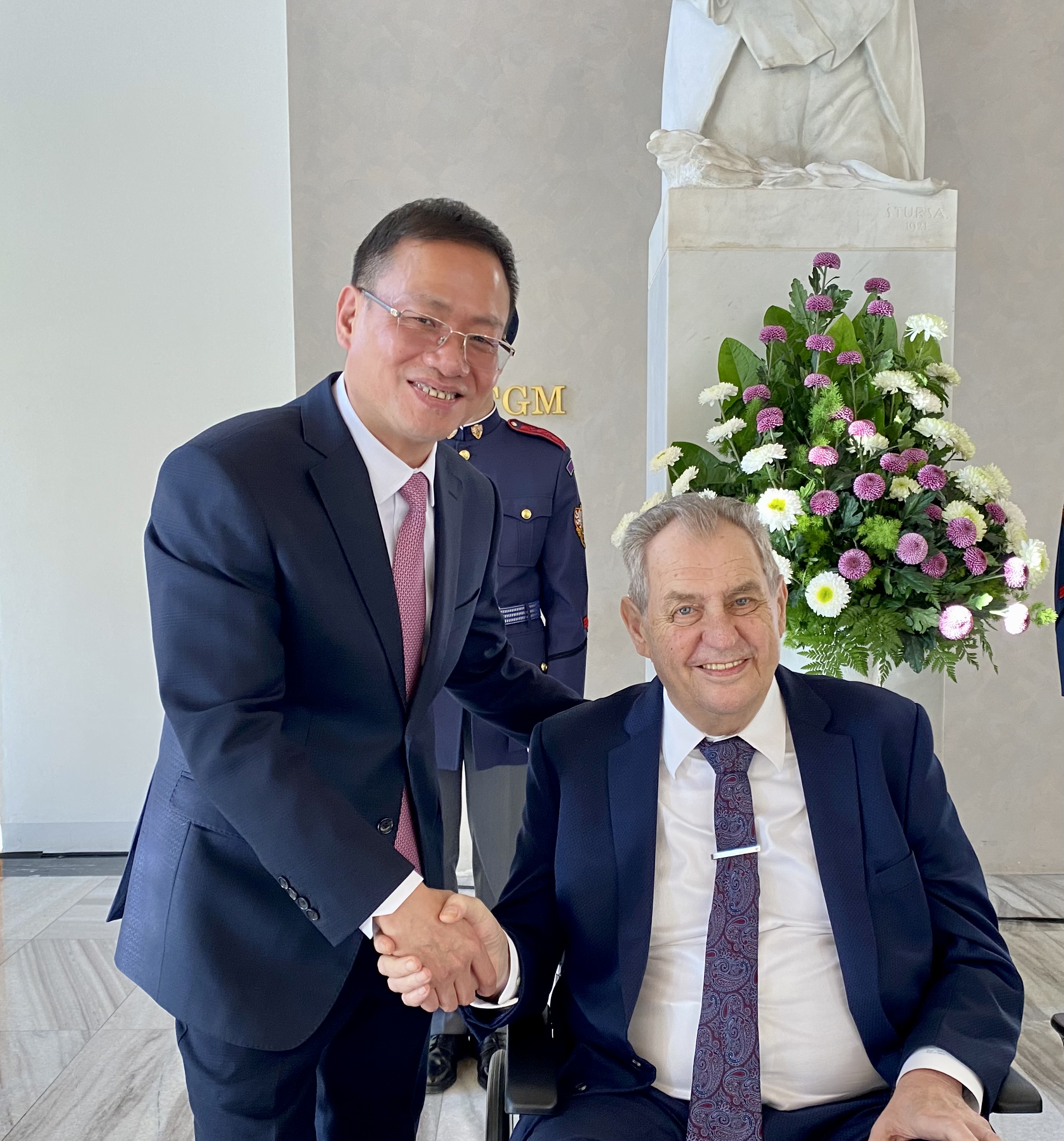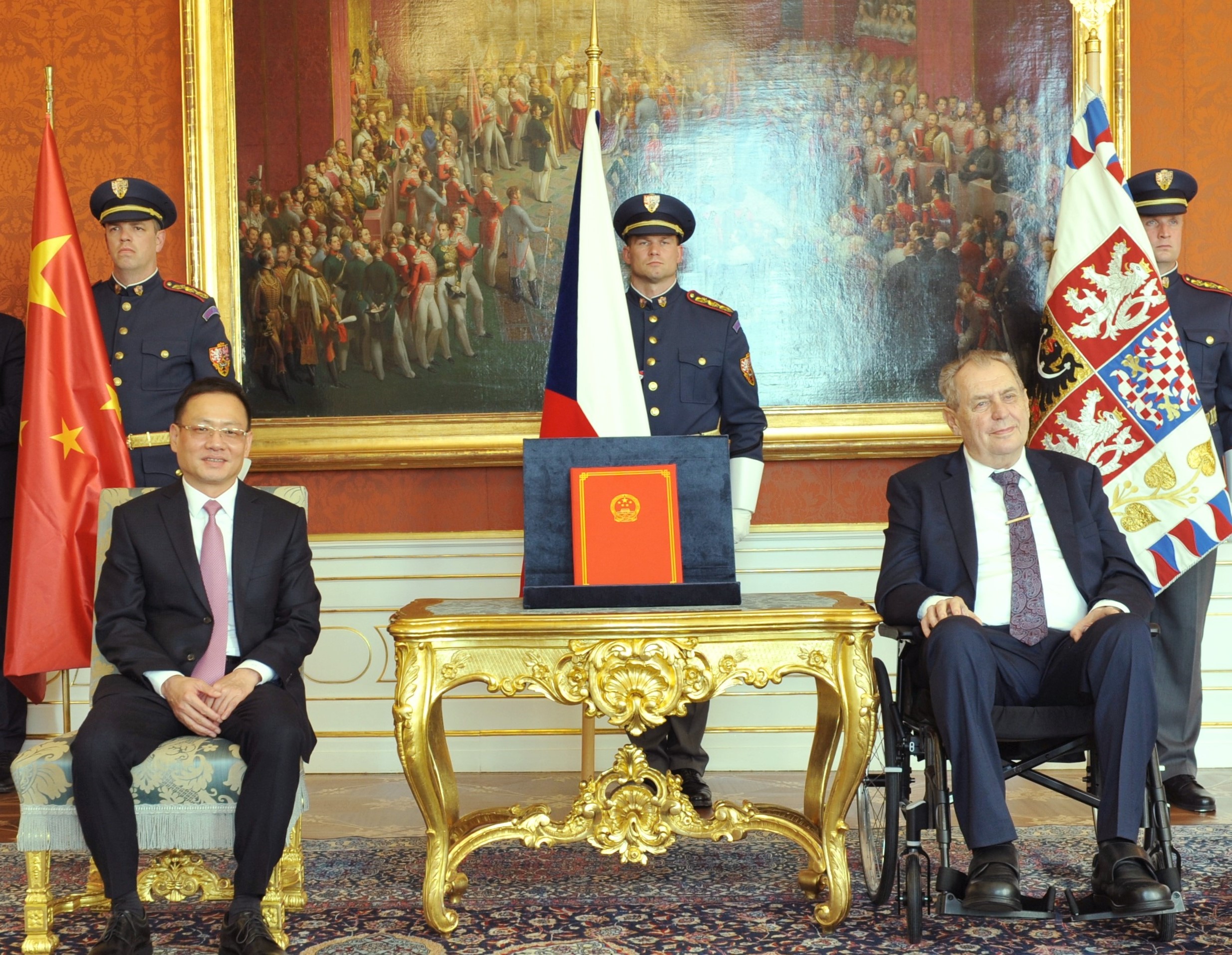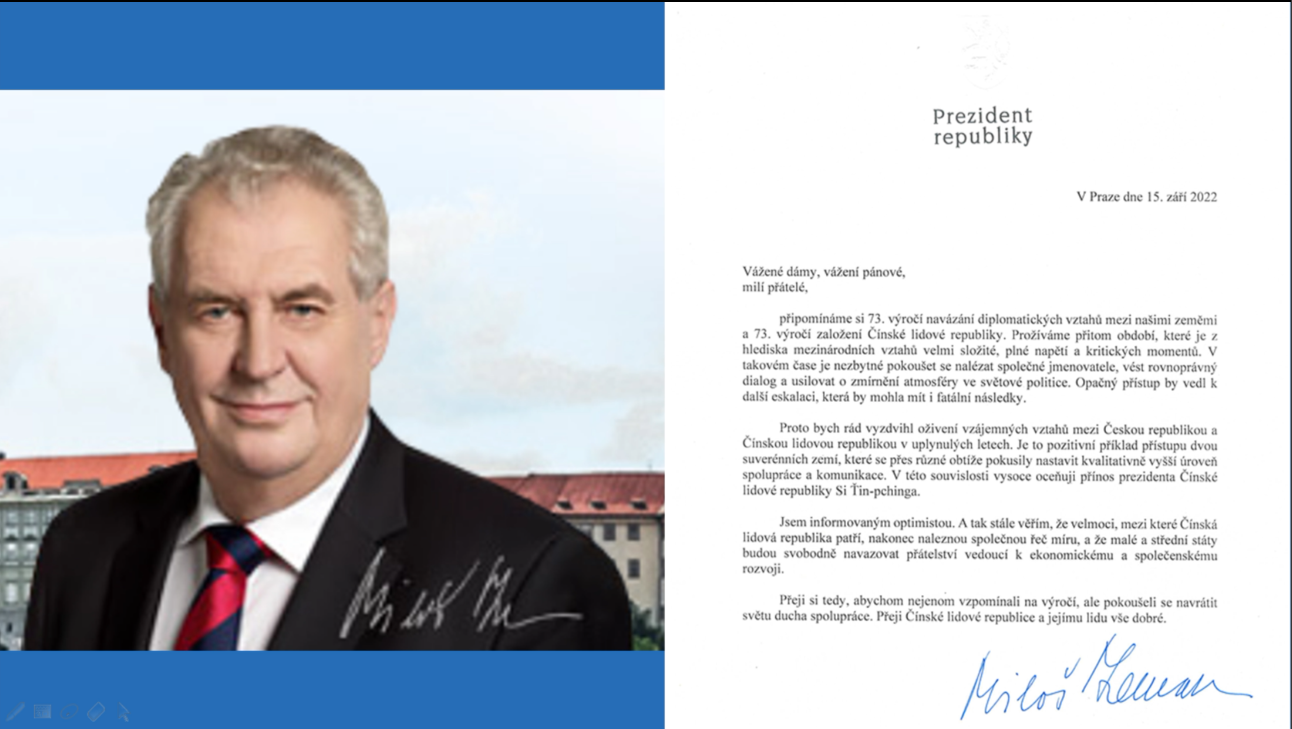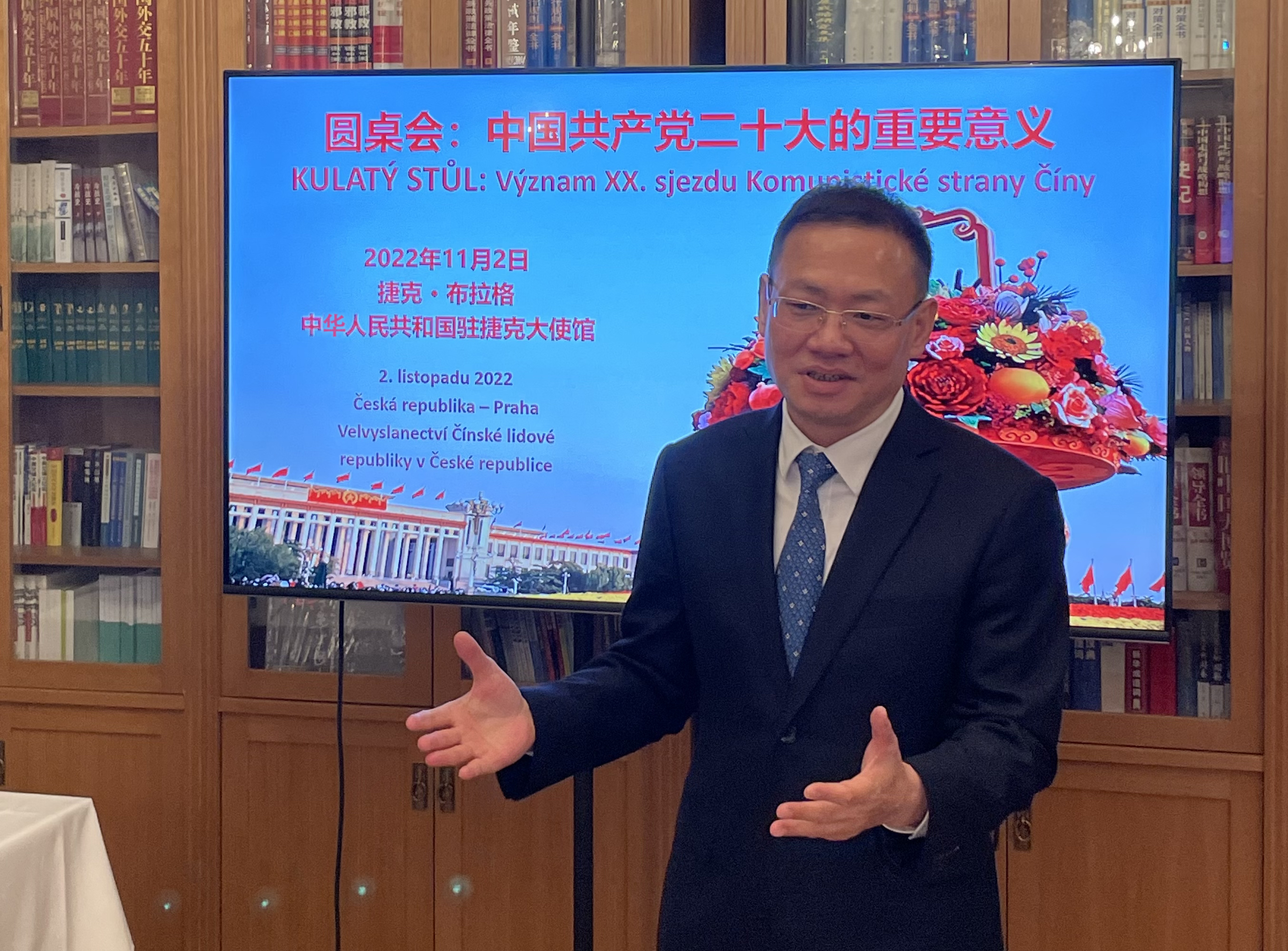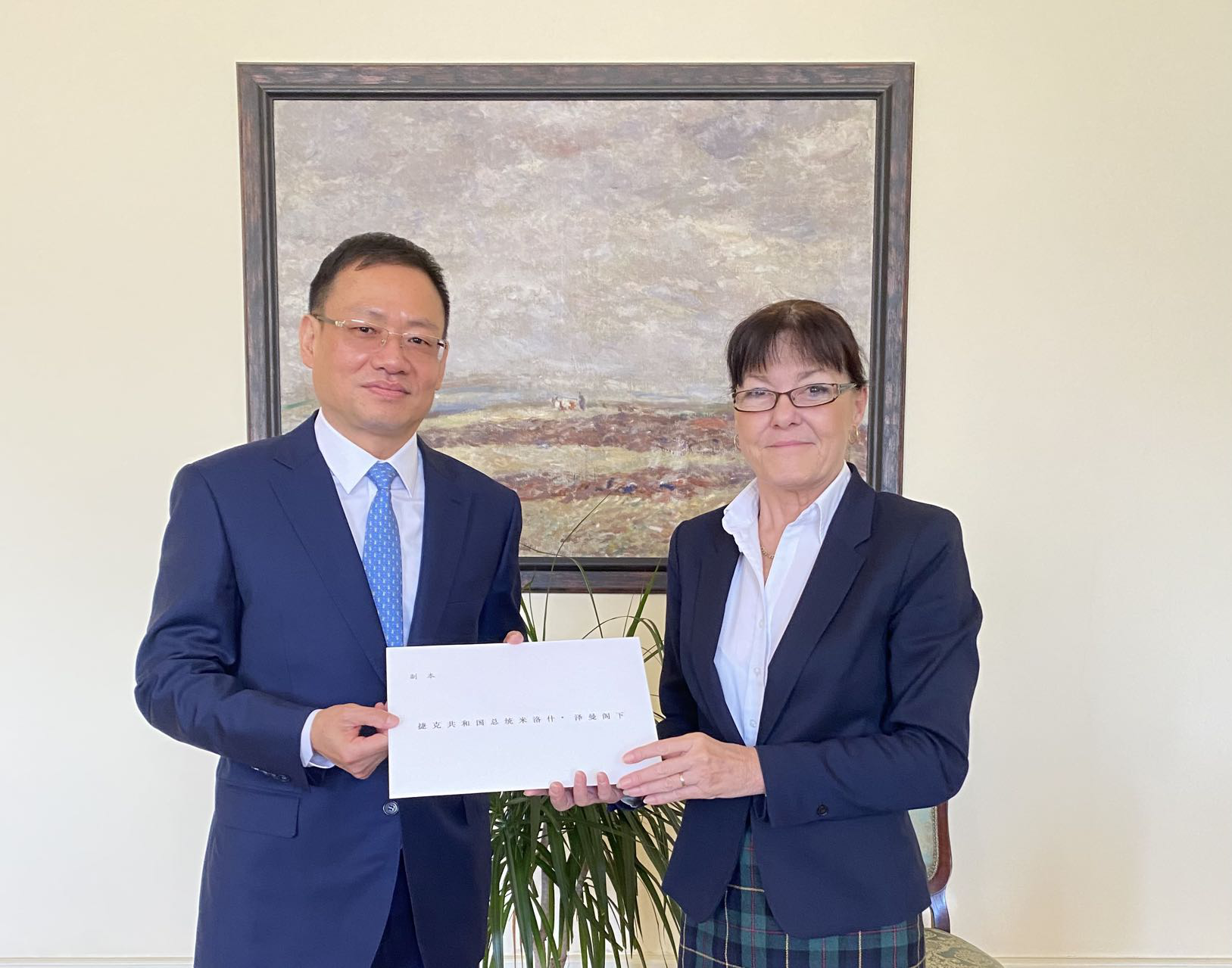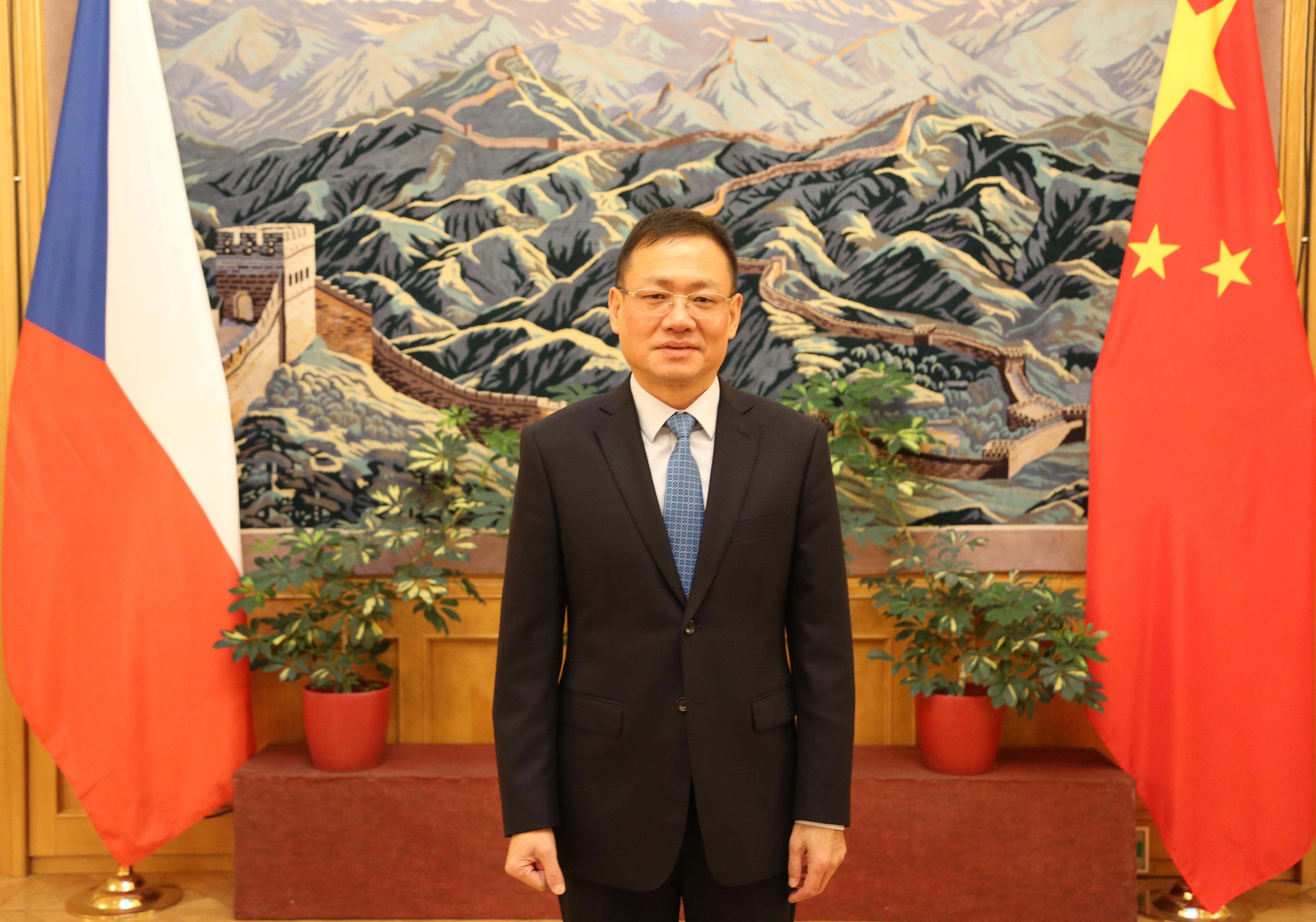| Foreign Ministry Spokesman Kong Quan's Press Conference on 28 September 2004 |
| 2004-10-08 00:00 |
| On the afternoon of September 28, Foreign Ministry Spokesman Kong Quan held a regular press conference. Kong: Good afternoon, ladies and gentlemen! First of all, I would like to extend welcome to the officials from the Hong Kong Special Administrative Region and the friends from higher education institutes in Beijing. Welcome to today's press conference. I don't have announcements to make. Now I'm ready to take up questions. Q: How does China evaluate Premier Wen Jiabao's visit to Russia? A: The recently concluded visit by Premier Wen Jiabao to Russia is an important one and bears far-reaching significance. It will definitely have important impacts on the development of our bilateral relations. During the regular meeting between Chinese Premier and Russian Prime Minister, not only did the two sides have an in-depth exchange of views on our exchanges and cooperation in various fields, but also set forth the objective for enhancing cooperation for the coming years. In addition, Premier Wen met with President Putin. Now both our two sides are making earnest and active preparation for President Putin's visit. We are deeply convinced that President Putin's visit to China is also bound to be an important and successful one. I recall that my friend with the UPI has once asked that whom Premier Wen will address during his visit to Russia. During his visit, Premier Wen made speeches to people from various communities in Russia and had extensive contacts with Russian scientists and young people. A most outstanding feature is that Chinese and Russian people share the strong wishes to uphold our friendship from generation to generation and steadily develop China-Russia Strategic Partnership of Coordination. Both of our two peoples are resolved to steadily expand and deepen the mutually beneficial cooperation between China and Russia in various fields. Q: Does China have any political motives behind its sending peacekeepers to Haiti? Is that because Haiti has "diplomatic ties" with Taiwan instead of with China? A: On the upcoming mission of Chinese peacekeepers to Haiti, we have participated in similar operations for many times at the request of the UN. Our fundamental purpose is to dispatch peacekeepers in light of the purposes and principles of the UN Charter. These operations should be conducive to maintaining the stability of the countries in conflicts, easing the conflicts between the parties concerned and restoring the overall peace of the region. The advance party of the Chinese peacekeeping mission in Haiti have been sent on their way. We invite our friends from the press to visit the training center for peacekeeping mission tomorrow and hope you could join us. I expect you to pose all the questions of your interest to the peacekeeping staff, including the commanding officers. You will, I believe, get satisfactory answers. Q: It is reported that China and Kazakhstan will start to build their oil pipeline today. Please confirm. Where does it start and end? What significance does it have on China's oil strategy? A: This project is a cooperation project between PetroChina and the oil company of Kazakhstan. I don't have particulars on the contract. But from the perspective of government, Premier Wen and Kazak Prime Minister exchanged their views on this question recently. Both sides agreed that the energy cooperation forms an important part of the mutually beneficial and friendly cooperation between China and Kazakhstan. The two sides attach importance to steadily expanding and deepening our bilateral cooperation in this field. Q: What's the purpose for Russian President Putin's visit to China? Do you have his detailed itinerary? In addition, did China receive any latest message from the Japanese Government on energy cooperation or natural gas exploration in the East China Sea? A: President Putin will pay a visit to China in October. Now our two sides are working on the detailed itinerary. I believe that during his visit, which is an important one in the process of continuous deepening and expansion of our friendly cooperation, Chinese and Russian leaders will make an in-depth exchange of views on all fields of cooperation in our bilateral relations. Regarding the question of the East China Sea, I myself have not been updated with any new information. Q: The new Japanese Foreign Minister paid homage to the Yasukuni Shrine in 2002 and 2003. At the press conference this morning, he said that Prime Minister Koizumi's visit to the Yasukuni Shrine was legitimate. What view does China hold on the remarks of the new Foreign Minister in Japan? What impact will this have on the future relations between China and Japan, in particular, the exchanges between the foreign ministers of the two countries? A: I have not yet read the remarks of the Japanese figure you talked about, and have to check it up. As for the question of Japanese leaders' paying homage to the Yasukuni Shrine, we have repeatedly expressed our position in a very serious manner. To correctly understand and treat the history of that period bears on the political foundation of China-Japan relations. It is also a very important condition for Japan to genuinely win the trust of the international community, especially of Asian countries and peoples. We hope the Japanese leaders to honor their commitment to repent of invasion and refrain from further moves that hurt the feelings of the Asian people. With regard to the future China-Japan relations, to develop the long-term good-neighborly relations of friendly cooperation between China and Japan serves the interests of our two countries and peoples. It also benefits the peace, stability and development of the world. You work with Japanese media. I hope you can convey to your readers, the Japanese people, such a wish of the Chinese Government and people-we are ready to join hands with Japan in promoting greater development of China-Japan relations in the 21st century by upholding the principles in China-Japan Joint Statement and two other political documents, "taking history as a mirror and looking forward into the future." Q: Last week, Pakistani and Indian Prime Ministers had a meeting in New York and decided to make joint efforts to peacefully resolve the conflicts between them. What's your comment on this? A: It is a very important meeting, important not only to India and Pakistan, but also to the whole region. Both of them are major countries in South Asia as well as friendly neighbors of China. We hope they can live in friendship and resolve differences through dialogue and consultation. We welcome that the two prime ministers held such an important meeting at such a crucial juncture. And we sincerely hope India and Pakistan make steady progress in their dialogue through continuous efforts, further enhance their mutual trust and continue to relax their relations. The development of their friendly relations does not only serve the interests of the two peoples, but also benefit peace, stability and development of the region. Q: What comment do you have on the reshuffle of Japanese cabinet? Putting the question of the Yasukuni Shrine aside, what impression do you have for the new Japanese Foreign Minister? A: The cabinet reshuffle in Japan falls within their internal affairs. I will not make comment on this. On your second question, when responding to an earlier question, I have said that we attach importance to China-Japan relations and wish to make joint efforts with the Japanese side to further develop China-Japan relations. We hope Japan to honor its commitment to repent of history, genuinely take history as a mirror and look forward into the future and win the trust of Asian people with its deeds. Q: Energy cooperation, in particular, the project of oil pipeline, is one of the important topics on the agenda of Premier Wen Jiabao's visit to Russia. What progress has been made in this regard during his visit? A: Premier Wen Jiabao and Russian Prime Minister Fradkov spent much time in discussing China-Russia energy cooperation and made an in-depth exchange of views. From the joint communiqué issued after their meeting, we can tell that great headway has been made on the question. A four-point agreement has been made. First, China and Russia will further strengthen their cooperation on energy, including oil and natural gas. Second, Russia will settle the alignment of the Far East oil pipeline through full study and analysis. Whatever plan is adopted at last, positive consideration will be given to a pipeline heading for China. Third, the two sides agreed to increase oil trade via land routes and elevate Russia's total oil export to China via railway to 10 million tons in 2005 and 15 million tons in 2006. Fourth, the two sides decided to draw up a plan on joint development of natural gas as soon as possible. I believe the four-point agreement between the Chinese Premier and Russian Prime Minister is very important and will play an important driving role in the future mutually beneficial cooperation of our two countries on energy, especially on oil and natural gas. Q: It is said that the Nepalese Government required China not to execute the two Nepalese involved in arms trafficking in China. Please tell us whether the two people have been executed or sentenced to death? A: The case involves two Nepalese who smuggled arms and ammunitions. Chinese court is handling the case and will give a ruling in accordance with law. Pending the ruling, I cannot make any predication as you asked for. Follow-up: Has any sentence been given on the case? A: The case is going through its procedure and the Chinese court will give a ruling in accordance with law. Q: This is the last press conference in September. It seems that the next round of the Six-Party Talks cannot be held by the end of September. What comment do you have on this? Has a new deadline been set for the next round of Talks? Is there any new progress made? Moreover, the DPRK claimed that the US should be held responsible for the impasse of the Six-Party Talks. What comment do you have on this? Which side do you believe should be held accountable for the Talks' failure to be held as scheduled? A: It is a consensus reached at the third round of the Six-Party Talks that the fourth round should be held by the end of September. It is the day of 28 today. Perhaps we are losing an opportunity, but we are not losing hope. We are optimistic over the settlement of the nuclear issue on the Korean Peninsula by moving forward the Talks. We are deeply convinced that the mechanism is effective in ensuring the denuclearization, peace and stability of the Peninsula. We hope the mechanism could move on. As to which side should be held responsible, I think it is oversimplifying the matter to make such a judgment. We have repeated for many times that the nuclear issue on the Peninsula is complicated and calls for joint arduous efforts by all parties. The parties should preserve their confidence and show a pragmatic and flexible attitude. We hope that the next round of the Talks to be held as early as possible. When it can be held depends on the efforts made by various parties. As the chair, China will as always play a constructive role in actively breaking peace and promoting talks. It is the Mid-Autumn Festival today. The full moon shed its light on charming blossoms. Though thin clouds might float in the heaven tonight, I'm fully convinced that the moon above the clouds must be perfectly round. Wish you a nice festival and everything goes well with you! Thank you! |
|
||||||||||||||||
| ||||||||||||||||
|
|
||||||||||||||||

